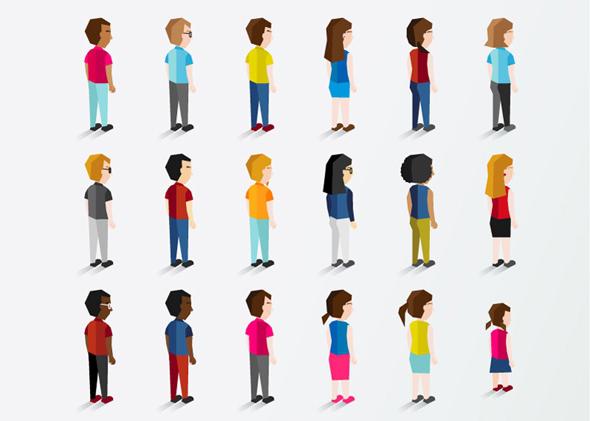You may have thought that Facebook knew a lot about you before, but now the company doesn’t even need your face to spot you in photos. As part of its extensive machine vision research to improve facial recognition, the social network has developed a new algorithm that can recognize people based on things like hair, personal style, and body shape.
New Scientist reports that Facebook researchers presented the new system at the Computer Vision and Pattern Recognition conference in Boston earlier this month. The group used 40,000 publicly available photos from Flickr to develop a neural network that recognized both faces and other physiological characteristics. Once it was finalized, the algorithm was able to identify people 83 percent of the time.
“There are a lot of cues we use. People have characteristic aspects, even if you look at them from the back,” said Yann LeCun, the head of artificial intelligence at Facebook. “For example, you can recognize Mark Zuckerberg very easily, because he always wears a gray T-shirt.”
Last week Facebook introduced a new service for photo organizing called Moments that uses extensive facial recognition to tag the people in your photos. The feature isn’t rolling out in Europe because regulators are wary of its broad individual identification. Other companies like Google are offering increasingly advanced photo organization and processing tools as well, but all of these services come with questions about privacy as companies get access to ever-larger troves of user data. Recently, a government working group meant to hash out the industry tension between facial recognition and privacy fell apart after exasperated privacy advocates walked out.
The field is also still evolving. Researchers from the University of Wyoming and Cornell University presented a paper at the same Computer Vision and Pattern Recognition conference that discussed the limitations of deep neural networks for facial recognition. They wrote:
Deep neural networks (DNNs) have recently been achieving state-of-the-art performance on a variety of pattern-recognition tasks, most notably visual classification problems. … [But] it is easy to produce images that are completely unrecognizable to humans, but that state-of-the-art DNNs believe to be recognizable objects with 99.99% confidence.
Whether it’s Facebook or the FBI, the privacy and accuracy problems of individual identification still seem to equal its potential usefulness in scope. But that’s clearly not stopping Facebook from going ahead and using it.
